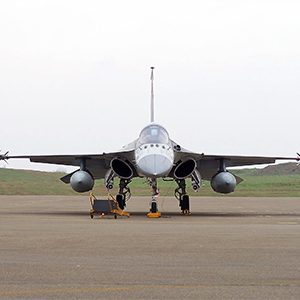The Delicate Balancing Act: Sustainability in the Defence Industry

In today's world, where threats to national security loom large and environmental concerns continue to grow, the defence industry finds itself at a crossroads, facing the challenging task of maintaining a delicate balance between its obligations to safeguard the nation and its responsibility to preserve the environment. As the demand for sustainable practices gains momentum globally, the defence sector must adapt and evolve to ensure a secure future without compromising the health of our planet.
The pursuit of sustainability within the defence industry involves a multifaceted approach, one that encompasses not only the adoption of eco-friendly technologies but also a comprehensive reevaluation of traditional manufacturing processes and operational protocols. While the defence sector has long been associated with heavy carbon footprints and resource-intensive operations, recent efforts have shown a significant shift towards more sustainable practices. From the integration of renewable energy sources to the implementation of efficient waste management systems, the industry is gradually redefining its role in environmental stewardship.
Embracing renewable energy sources stands as a key pillar in the defence industry's journey toward sustainability. Incorporating solar, wind, and other renewable energy technologies into military installations and operations not only reduces the sector's dependence on fossil fuels but also diminishes its overall environmental impact. Furthermore, the development of advanced energy storage solutions enables the deployment of renewable energy in remote and challenging terrains, thereby enhancing the resilience and effectiveness of military operations while minimizing ecological harm.
Furthermore, integrating cleaner manufacturing techniques and utilizing eco-friendly materials is crucial for fostering sustainability in the defense industry. Advances in 3D printing and additive manufacturing have facilitated the creation of military equipment that is not only more robust and energy-efficient but also lighter in weight. By emphasizing the utilization of recyclable materials and minimizing the generation of harmful waste, defense establishments can diminish their environmental impact and actively participate in the worldwide battle against climate change and pollution.
Nevertheless, achieving sustainability in the defence industry goes beyond technological advancements and green initiatives; it necessitates a fundamental shift in the mindset and culture of defence personnel. Education and training programs that highlight the significance of environmental conservation and sustainable practices are instrumental in fostering a sense of responsibility and awareness among military personnel. By instilling a culture of environmental consciousness, the defence sector can proactively integrate sustainability into its day-to-day operations and decision-making processes, thereby laying the groundwork for a more ecologically sound and secure future.
While the integration of sustainable practices in the defence industry undoubtedly presents numerous benefits, it also poses inherent challenges that demand careful consideration. Striking a balance between environmental responsibility and national security often requires intricate trade-offs and compromises. The development and deployment of cutting-edge weaponry and defence systems, while imperative for maintaining national security, can sometimes have adverse ecological consequences. The production and disposal of hazardous materials, as well as the carbon emissions associated with certain military activities, remain significant concerns that demand proactive mitigation strategies and stringent regulatory frameworks.
Furthermore, the geopolitics of resource management and the global arms race pose additional complexities in the pursuit of sustainability within the defence industry. The competition for finite resources, including rare earth elements and minerals essential for the manufacturing of advanced military technologies, often results in geopolitical tensions and environmental degradation. Addressing these challenges necessitates international cooperation and the formulation of sustainable resource management policies that prioritize both environmental preservation and national security interests.
In conclusion, the path toward sustainability in the defence industry requires a harmonious integration of technological innovation, cultural transformation, and global collaboration. By prioritizing the adoption of renewable energy sources, eco-friendly manufacturing processes, and comprehensive environmental education, the defence sector can effectively mitigate its ecological impact while upholding its commitment to national security. However, navigating the intricate dynamics between environmental responsibility and national security demands a holistic approach that encompasses policy reforms, collaborative partnerships, and continuous advancements in sustainable technologies. Only through concerted efforts and proactive measures can the defence industry achieve a sustainable equilibrium that safeguards both our planet and our nation.









